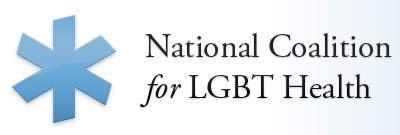 The 10th annual LGBT Health Awareness Week runs from March 26 to 30. The National Coalition for LGBT Health organizes the event, which is a call to action to recognize health and wellness as an essential part of the LGBT social justice movement.
The 10th annual LGBT Health Awareness Week runs from March 26 to 30. The National Coalition for LGBT Health organizes the event, which is a call to action to recognize health and wellness as an essential part of the LGBT social justice movement."Come Out for Health" is this year’s theme. The goal is to advance four core LGBT health principles: consumer empowerment, culturally competent services, engaged communities and inclusive policymaking.
The coalition has launched two new initiatives for this year’s awareness week.
In partnership with the Rainbow Access Initiative, LGBT Health Story seeks input from all LGBT health care consumers. Here are just a few of the questions they want answered: What was your best health care experience? What was your worst health care experience? When did you come out to your health care provider? How LGBT culturally competent is your health care provider?
A new report -- Obstacles and Opportunities: Ensuring Health and Wellness for LGBT Families -- finds that:
? LGBT families have reduced access to health insurance. Under federal law, most employers are not required to offer health benefits to the same-sex partners of LGBT workers, nor the partner’s children, even if the couple is legally married in their state. When coverage is offered, LGBT families must pay additional taxes. For transgender family members, insurance plans may contain exclusions that create obstacles to coverage for even the most basic care.In partnership with the National Coalition for LGBT Health, the report was co-authored by the Movement Advancement Project, the Family Equality Council and the Center for American Progress.
? LGBT families face restrictions on caregiving and medical decision-making. Under federal and state laws, LGBT parents may be denied leave to take care of one another or establish a legal relationship to their child, limiting the ability to make medical decisions.
? LGBT families encounter unwelcoming healthcare environments. Professional caregivers, including physicians, counselors and support staff, may be uninformed, hostile, discriminatory, or refuse to treat LGBT people and their families.
? LGBT families have increased health disparities. Key disparities between LGBT adults and the general population can be seen not only in access to health insurance, but also in access to care, which together lead to higher incidences of chronic health conditions.
In a statement, the authors make it clear that although health care reform, when fully implemented, will improve LGBT health, the repeal of the Defense of Marriage Act to allow federal recognition of LGBT families would, among other suggestions, go a long way toward LGBT health equality.
Further proof that all of the goals of LGBT equality -- marriage, workplace nondiscrimination, health care -- are interconnected.







Comments
Comments